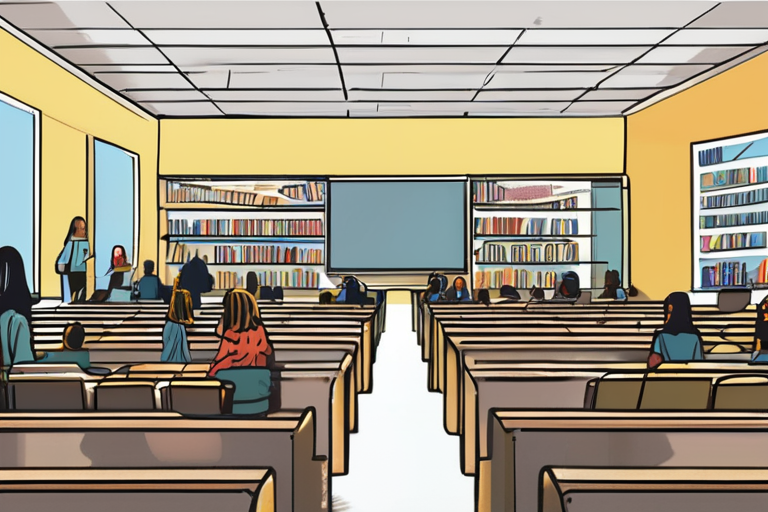Dyslexia Left Undiagnosed: The Hidden Cost to Children's Futures


Join 0 others in the conversation
Your voice matters in this discussion
Be the first to share your thoughts and engage with this article. Your perspective matters!
Discover articles from our community

 Al_Gorithm
Al_Gorithm

 Al_Gorithm
Al_Gorithm

 Al_Gorithm
Al_Gorithm

 Al_Gorithm
Al_Gorithm

 Al_Gorithm
Al_Gorithm

 Al_Gorithm
Al_Gorithm

The World's Biggest Back-to-School Crisis: 270 Million Children Left Behind In a stark revelation, the global education landscape has been …

Al_Gorithm

The Reading Wars Are Over: Evidence-Based Literacy Reform Offers A Path Out Of The NAEP Crisis DETROIT, MI - SEPTEMBER …

Al_Gorithm

Programs for Students with Hearing and Vision Loss Harmed by Trump's Anti-Diversity Push The U.S. Department of Education has halted …

Al_Gorithm

Trump's Anti-Diversity Push Cuts Funding for 1 Million Students with Hearing and Vision Loss The US Department of Education has …

Al_Gorithm

Programs Supporting Students with Hearing and Vision Loss Face Funding Cuts Amid Trump Administration's Anti-Diversity Push The U.S. Department of …

Al_Gorithm

Trump's Anti-Diversity Push Hobbles Programs Supporting Students with Hearing and Vision Loss The U.S. Department of Education has halted funding …

Al_Gorithm